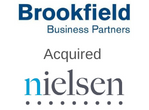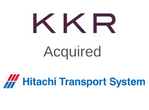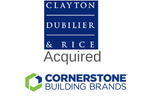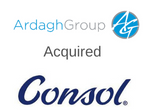Industry Outlook
Despite the slowdown in the second half of 2022, deal activity is expected to pick up in 2023, as over 2,000 transactions were announced during 2022.
M&A activity in the global industrials sector was largely influenced by the outbreak of the COVID-19 pandemic in 2020, the re-opening of the global economy in 2021, and the subsequent inflationary economic environment that followed in 2022. Fears of higher inflation in the latter half of 2021 spilled over into 2022, causing investors to remain on the side-lines during the first half of the year. As a result, deal activity declined 10% in the first half of 2022 compared to the previous six months. As inflation fears realised and became problematic in the latter half of 2022, M&A activity decreased even further, resulting in deal activity for the year ending 13% lower than 2021.
Despite the slowdown in the second half of 2022, deal activity is expected to pick up in 2023, as over 2,000 transactions were announced during 2022 but were not concluded. Moreover, private equity’s involvement in the industry has been relatively stable over the last year, accounting for 18% of all completed transactions. Given that this is in line with the industry’s 5-year average, we expect private equity investors to play a similar role in M&A activity during 2023.
As a result of inflationary fears, 2022 was a modest year for M&A mega-deals in the global industrials sector (transactions with values above R10 billion). The year saw a total of 138 mega-deals amounting to over R6.1 trillion with the bulk of transactions occurring in the USA (49), the UK (12), and China (7). South Africa accounted for two mega-deals during the period, one of which led to a subsequent delisting from the Johannesburg Stock Exchange (JSE). These transactions include DP World’s acquisition and subsequent delisting of Imperial Logistics (March-22) and Ardagh Group’s acquisition of Consol Holdings (April-22).
Global M&A transactions

Notable global M&A deals

Brookfield Business Partners led investor group’s acquisition of Nielsen Holdings during October for $15.5 billion.

SAS Shipping Agencies Services’ acquisition of Bollore Africa Logistics during December for $6.1 billion.

KKR’s acquisition of a 60% stake in Hitachi Transport System during November for $5.6 billion.

Clayton, Dubilier & Rice’s acquisition of Cornerstone Building Brands during July for $3.9 billion.
M&A activity in the African Landscape with a focus on South Africa
African M&A transactions
South African M&A transactions by sub-sector
After a tumultuous 2022, the African Industrials sector followed global M&A trend. While global M&A activity declined by 13% between 2021 and 2022, African deal activity declined by 14% over the same period. Business Services and Transport & Logistics accounted for the bulk of the sector’s M&A activity– collectively accounting for 61% of completed transactions in Africa and 65% of completed transactions in South Africa during 2022.
In South Africa, Business Services, the largest sub-sector by deal volume, accounted for 46% of completed transactions during 2022, as 14 transactions were concluded (2021: 10). In a distant second, Transport & Logistics accounted for 6 transactions during 2022 (19% of completed transactions), down from 9 the year before.
South African cross-border transactions remained relatively stable during the year, when compared to previous periods, accounting for 15 completed transactions (2021: 17 transactions). This was largely driven by an increase in Business Services related cross-border transactions (up by 133%) which offset the decrease in Automotive and Engineering & Construction related transactions.
Notable South African M&A transactions

DP World’s acquisition and subsequent delisting of Imperial Logistics during March for R22,3 billion, providing the company an entry into South Africa and strengthening its footprint as a global end-to-end logistics provider.

Ardagh Group’s acquisition of Consol Holdings during April for R10,1 billion, expanding their glass production capabilities in Africa.

African Infrastructure Investment Managers’ (“AIIM”) led acquisition of The Logistics Group during March for R1.6 billion, bolstering AIIM’s transport strategy in Southern Africa by addressing ports and inland transport capacity deficits.

Masimong Holding’s acquisition and subsequent delisting of ARB Holdings during July for R696 million, improving ARB’s B-BBEE scorecard.
Trends driving M&A activity in South African industrial subsectors
Automotive
– Supply chain disruptions, global semiconductor and skilled labour shortages, and problems with SA transportation infrastructure has made it difficult for manufacturers to meet consumer demand, even as demand for new cars decreased amid higher inflation and rising interest rates.
-Deals related to addressing supply chain problems, obtaining skilled labour, new technologies, and automation are therefore more likely to occur in 2023.
-Although electric vehicles (“EV”) is a trending topic globally, South Africa’s unstable electricity supply means that we don’t anticipate many EV-related transactions to take place in 2023.
Business Services
-The South African Business Services industry is diverse and highly fragmented with a few participants holding majority of the market share in their respective areas. Given the presence of private equity firms within the industry, rollup and consolidation acquisitions are increasingly likely as private equities look to build sizeable targets with the aim of selling to market leaders.
-Difficulty in obtaining skilled labour in knowledge-work areas are expected to fuel talent-based acquisitions within the industry.
-Scope acquisitions are expected as complementary services help to unlock economies of scale while providing acquirers access to adjacent high-growth business areas.
Chemicals
-Acquisitions within and around existing operating footprints are expected to become more prevalent as investors look to consolidate their positions within predetermined operational geographies. Acquisitions outside of these geographies will be less likely given increased supply chain challenges and a lack of scale economy benefits.
-Divestment of non-core assets and assets within non-core geographies are expected to create acquisition opportunities as business look to refocus their operations amid inflation and margin pressures.
-Expansion into new verticals is less likely to occur given the cyclicality of the chemicals industry and the current stage of the business cycle. These acquisitions are however not improbable.
Containers & Packaging
-Global trends are shifting away from single-use packaging toward rigid/durable materials. As a result, transactions in metal, glass, and rigid plastic packaging materials are expected to be more common than their single-use and non-durable counterparts.
-The focus on a circular economy is likely to fuel activity within the sector as manufacturers look to acquire or form strategic partnerships with participants along the production and recycling value chains.
-Low industry growth forecasts are expected to increase consolidation within the industry as companies look to grow their top line and unlock economies of scale.
Engineering & Construction
-Higher inflation and increasing costs of commodities have increased pressure on margins. Companies looking to contain costs are expected to divest non-performing assets or implement vertical expansion strategies to capture value along the supply chain.
-Increasing interest rates are expected to halt demand for new construction projects, dampening growth within the sector. Construction & Engineering companies pressured by shareholders to meet growth targets are expected to diversify their operations into adjacent high growth business areas.
Industrial Manufacturing
-Industrial manufacturing players are expected to pursue capability-driven acquisitions to help build supply chain resilience. Focus areas are likely to include cost efficiency, technological and innovative capabilities, digital deployment, additive manufacturing, and industrial automation.
-Shift toward ACES (autonomous, connectedness, electrification, and shared mobility) is likely to spur transactions as companies embrace the 4th industrial revolution.
-Industrial manufacturing companies are likely to consolidate at the OEM and supply-chain levels to reduce fixed costs, gain competitive scale, increase downturn resilience, and strengthen supply chains.
-Expansion into the services, aftermarket and parts businesses are likely as these business areas provide manufacturing firms with access to more profitable business lines while maintaining a relatively stable asset base.
-Companies showing strength and resilience in the face of sustained load-shedding are expected to attract the attention of their acquisitive competitors.
Trading & Distribution
-Distributors are at risk of competing with their own suppliers as manufacturers look to enter the direct-to-consumer (“D2C”) market, subsequently bypassing the traditional distribution model. Capability-driven acquisitions are therefore expected to become more prevalent in this space as distributors seek to improve and differentiate themselves to maintain their market share.
-Rising consumer demand at the end of 2021 through 2022, and the subsequent bullwhip effect that followed, resulted in excess inventory being tied up working capital. Distributors looking to improve profitability are expected to discontinue unprofitable business lines, freeing up capital to be used for further expansion.
Transport & Logistics
-The Middle East, particularly the UAE and Saudi Arabia, have set their eyes on Africa as the basis for their economic diversification strategies. As a result, the region has poured billions into Africa through acquisitions and transport infrastructure development projects.
-Multinationals looking to maintain their influence within the continent are expected to strengthen their position via acquisitions and strategic partnerships in key countries including South Africa, Egypt, Algeria, and Senegal, among others.
-Mega-deals are expected to slow down amid the current market uncertainty, however smaller capability-driven deals are expected to continue as industry participants look to consolidate.
-2022 saw an increased demand for asset-light logistics companies to bolster asset-based transportation capabilities. This trend is expected to continue throughout 2023.
The 2022 mergers and acquisitions environment was largely affected by the uncertainty of macroeconomic and geopolitical events, casting a shadow over the growth prospects and profitability of the sector.
We are however optimistic that industrials M&A activity, in both the South African and international markets, will improve during 2023. Acquisitions and divestitures related to scale, scope, and capabilities will ensure a healthy level of deal activity throughout the year.




